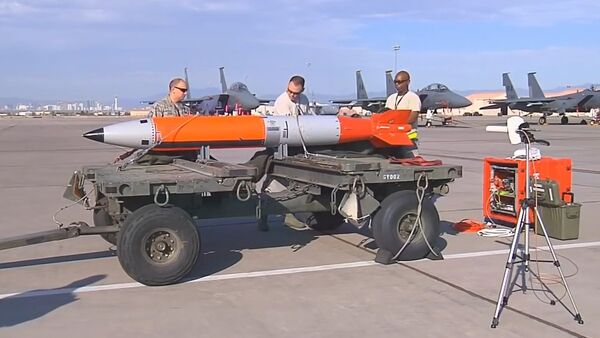Just recently the United States completed tests of its newest B61-12 atomic bomb. The test was conducted from an F-15E bomber at Tonopah Test Range in Nevada on October 20, according to the National Nuclear Security Administration (NNSA). The agency underscored that the bomb "demonstrated successful performance in a realistic guided flight environment."
"Completing this guided B61-12 flight test provides additional evidence of the nation's continued commitment to our nation’s security and that of our allies and partners," the NNSA said in a press release.
Nuclear weapons aren’t valid for the deterrence of terrorism, one of the major threats to the international community. Despite this the United States, Russia and China continue to modernize their nuclear weapons systems, Ingram said.
Partially there is a legacy dragging from the times of Cold War, but more importantly there is “an entire industry that is based upon fear,” Ingram told Radio Sputnik.
Nuclear weapons create a major split among those few countries that have nuclear arms and the rest of the world. States that don’t have nuclear weapons are frustrated with the fact that nuclear states aren’t willing to reduce, let alone eliminate, their nuclear stockpiles. This creates tensions and distrust within the international community, Igram said.
“This nuclear dimension harms the ability of Americans and Russians to collaborate on issues such as ISIS and Syria,” Ingram argued.
That’s why when it comes to dealing with common problems both Washington and Moscow are skeptical of each other’s commitments.



